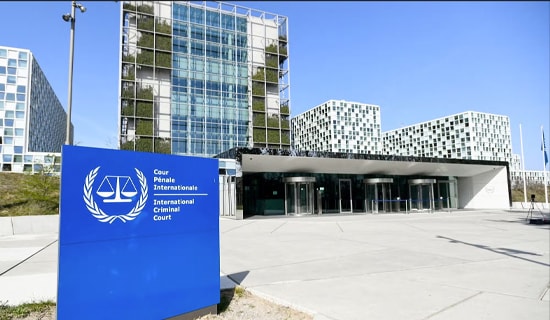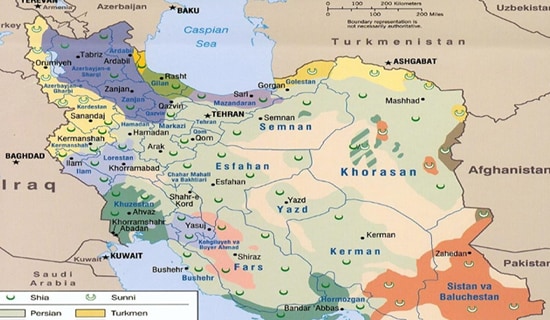Introduction
In contrast with the great number of reactions and criticism heard in the West at the execution of deposed Iraqi President Saddam Hussein, the Arab world's response was largely limited to minor diplomatic reactions focusing mostly on the timing of the execution - the first day of the Feast of the Sacrifice - and not on the execution itself.
There were no statements on the matter from Arab leaders, except from Libyan ruler Mu'ammar Al-Qadhafi, who, in an unrelated speech, commented on the issue and declared three days of mourning. [1] The Arab League had no statement to issue, and neither did its secretary-general, 'Amr Moussa.
The official Saudi reaction came in the form of an article by the Saudi Press Agency's political analyst, which stated: "There is a feeling of astonishment and disdain at the fact that the sentence was carried out during [Islam's] holy months and on the first day of the blessed Feast of the Sacrifice, which is the embodiment of Muslim unity and during which fraternity reigns among them. Millions of pilgrims who meet on a blessed common ground look for what unifies them, and not for what separates them from one another. Millions of Muslims expect the entire world - and not just the Arab political leaderships - to respect this great event [the pilgrimage to Mecca], its honor, and its [cardinal] importance to Muslims, and not to take it lightly." [2] That is, according to this statement, Saddam's execution demeaned the holiday and degraded its sanctity.
Egypt merely issued a statement in the name of the Egyptian Foreign Ministry, expressing "consternation at the fact that the sentence was carried out on the first day of the Feast of the Sacrifice and during the performance of the pilgrimage rites, without taking into account the feelings of the Muslims or the sanctity of the day, which signifies mercy and tolerance." [3]
On the other hand, in Kuwait - which experienced the trauma of the Iraqi occupation in 1991 - there was much satisfaction over the execution. Kuwaiti parliamentary head Jassem Muhammad Al-Kharafi said, "Saddam's death penalty was just. The blessed Feast of the Sacrifice that we are celebrating is twice [as joyful] now that Saddam Hussein's death sentence has been carried out." [4]
Commentary on the general Arab indifference to the execution was reflected in an editorial by 'Abd Al-Bari 'Atwan, editor of the London daily Al-Quds Al-'Arabi known for his support of the Saddam regime. In it, 'Atwan expressed disappointment at this indifference: "We are sad and pained when we see an Arab leader approaching the noose while there is silence and indifference on the part of his fellow Arab leaders and more than 300 million Arabs spread out over five continents in the world." [5]
Articles in the Arab Press: The Sentence Was Just, But the Timing was Problematic
Some of the Arab columnists who expressed criticism of the timing and haste with which the sentence was carried out emphasized that Saddam Hussein had received the punishment he deserved. 'Abd Al-Rahman Al-Rashed, director-general of Al-'Arabiya TV, wrote:
"Despite most people's focusing on the mistaken timing [of the execution], the truth is that Saddam deserved the execution. He perpetrated crimes against the Iraqi people and against other peoples in the region, more than any other political criminal. This justifies the implementation of the worst punishments against him. A man like him deserves no mercy, since he executed innocent people for imaginary reasons, without trial, and with unparalleled cruelty. He gave orders to indiscriminately kill young people, the elderly, and innocents. His execution will be a lesson for the leaders and the cruel murderers who think that they can escape from their crimes…
"Had Saddam been executed without trial, or following a field trial, it would have been more easily accepted than the fact that he was executed on a day that people consider a day of tolerance, when Muslims mark the day that Allah [had mercy on] Ibrahim and permitted him not to sacrifice his son Isma'il, the day that has become a symbol of clemency and mercy." [6]
Tariq Al-Humayd, editor of the London daily Al-Sharq Al-Awsat - which generally reflects the Saudi position - wrote in a similar vein, adding the dimension of the current Sunni-Shi'a conflict. He criticized the fact that Saddam was executed only for his crimes against the Shi'ites, whereas his graver crimes - which Al-Humayd enumerated - were against Sunnis. Al-Humayd said that it would have been better to condemn Saddam for these crimes as well:
"Was Saddam Hussein a dictatorial ruler who deserved to be executed? Yes. But the timing of the execution was crude and provocative, due to the special character of the day and its sanctity. Indeed, it may be said that the problem in Saddam's execution was the crime of the timing, and the haste in which it was carried out raises many questions… and deepens the sectarian [rift] in Iraq and in the region more than ever…
"Saddam's being executed only for the episode of Al-Dujail is a kind of hastiness, and ignorance of the facts. Shi'ites were not the only victims of Saddam Hussein. There were [also] the Kurds, who are Sunnis; they were wiped out barbarically by Saddam's soldiers… [Likewise,] there was the Al-Ramadi massacre of Sunnis, as well as the blood [spilled] in the war [against] Iran, and [the issue of] Kuwait and the blood of its captured." [7]
Following Western Criticism, Arab Papers Term Saddam's Execution Illegal
In the wake of Western protests against Saddam's execution, following the execution Arab newspapers also expressed criticism of the legality of Saddam's trial and of his sentence. An editorial in the Egyptian daily Al-Gumhouriyya, titled "A Holiday Gift, American Style" read: "Bush did not forget to grant the Muslim world a gift for the Feast of the Sacrifice, through the execution of the first Arab Muslim president by the invaders, after a ridiculous trial that was dismissed by international human rights organizations…
"Saddam Hussein committed crimes and mistakes, and his justifications for them are not acceptable to us. However, his execution - like this, in a way that contradicts international and human law, and with timing that reflects lack of consideration for the feelings of millions of Arabs and Muslims - is a crime, whose perpetrators history will pursue, sooner or later." [8]
A day later, Hamud Abu Taleb, columnist for the Saudi daily Al-Watan, wrote in a similar vein: "The decision concerning the execution - and I am not saying 'the sentence' - was political, and not the result of the completion of all [required] judicial proceedings…" [9]
[1] Al-Sharq Al-Awsat (London), December 31, 2006.
[2] Saudi Press Agency, December 30, 2006.
[3] Al-Gumhouriyya (Egypt), December 31, 2006.
[4] Al-Rai (Kuwait), December 30, 2006.
[5] Al-Quds Al-Arabi (London), December 30, 2006.
[6] Al-Sharq Al-Awsat (London), December 31, 2006.
[7] Al-Sharq Al-Awsat (London), December 31, 2006.
[8] Al-Gumhouriyya (Egypt), December 31, 2006.
[9] Al-Watan (Saudi Arabia), December 31, 2006.








